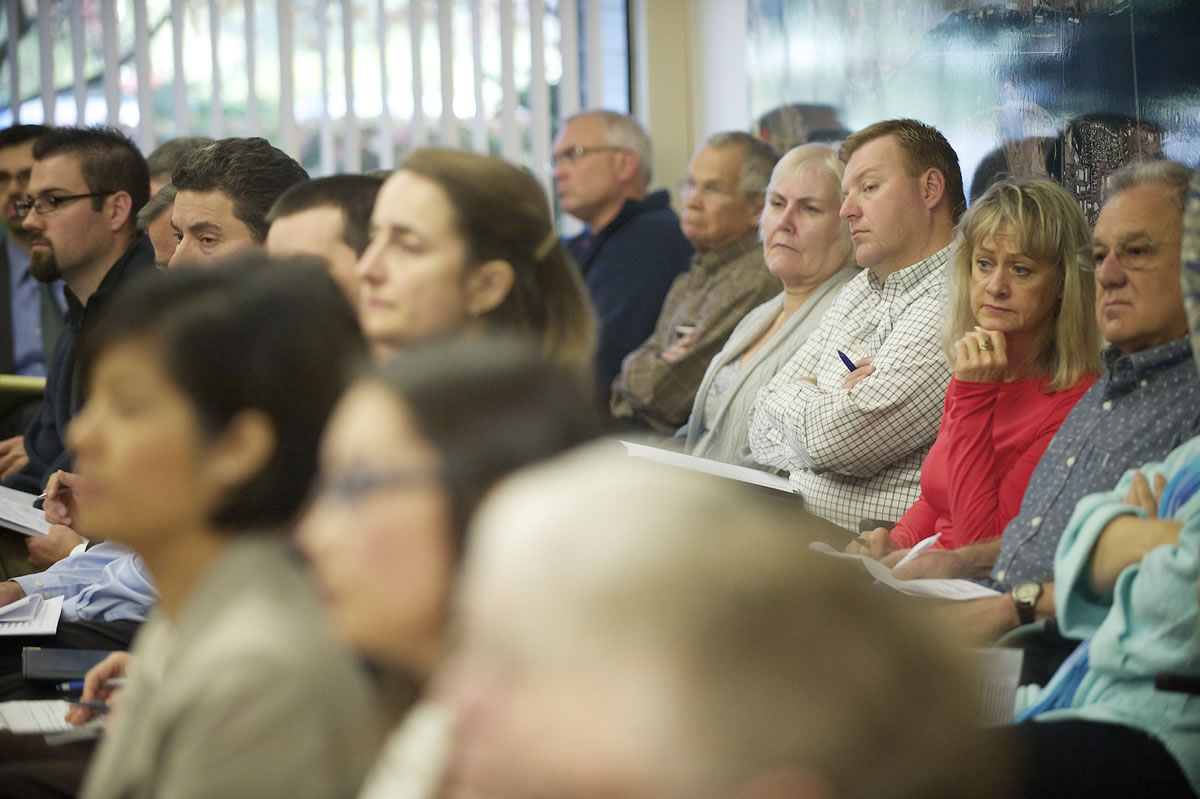Legal jousting over how the Port of Vancouver handled a lease to build the largest oil-handling facility in the Northwest ramps up today, as the opposing parties head to Clark County Superior Court to argue before Judge David Gregerson.
At issue is a lawsuit filed on Oct. 2 against the port by three environmental groups. The suit alleges the port, in approving the lease involving 42 acres and worth at least $45 million over an initial 10 years, broke state open public meetings and environmental laws. The port denies wrongdoing.
It’s not entirely clear how the suit may impact the $110 million proposal by Tesoro Corp. and Savage Companies to build and operate an oil-by-rail facility capable of handling 380,000 barrels of crude per day.
Under one scenario, the lease could be nullified. That would upend the port’s move to capitalize on a U.S. oil boom. Conversely, the judge could toss out the suit. That would keep the lease intact. Currently, the proposed oil terminal, which faces fierce public opposition, is undergoing environmental review as part of a state-level permitting process.
In court documents, the port urges Gregerson to dismiss the complaint, arguing, in part, that the public meetings law accusations are moot. It also asserts that it wasn’t required to conduct an environmental-impact review before approving the lease. That’s the job of the state Energy Facility Siting Evaluation Council, the port contends.
Columbia Riverkeeper, Sierra Club and Northwest Environmental Defense Center counter that their suit should advance, potentially to a trial phase. They argue the port failed to include the public at all stages of its decisionmaking, in part, by conducting an illegal secret meeting. They also contend the port prematurely approved the lease without first examining the oil terminal’s potential harmful impacts under state environmental rules.
Private meeting at issue
The environmental groups’ complaint partly focuses on an executive session that port commissioners held on July 22 during a public meeting to discuss the oil-terminal lease.
Under the Washington state Open Public Meetings Act, governments are allowed to convene such private meetings but only for limited purposes. There’s “absolutely no indication” commissioners only discussed a minimum lease price, according to Brian Knutson, a Seattle attorney for the environmental groups. Instead, they deliberated on “issues related to the terms of the lease, the proposed terminal’s operations plan, the public comments, and safety and security concerns.”
The port also failed to announce to the public a valid purpose for the executive session, Knutson contends, and neglected to tell citizens when the private meeting would end.
Port commissioners Nancy Baker, Jerry Oliver and Brian Wolfe voted unanimously on July 23 to approve the lease. The Columbian first raised the open meetings concerns in a July 31 story.
Lawson Fite, a Portland attorney representing the port, argues that the commissioners took extensive public input and held a legal executive session. They also took their July 23 vote in public, he says, which renders the meetings law complaint moot.
Further making the complaint moot, Fite argues, is the port’s decision to approve the lease in a second public vote, held on Oct. 22.
“For over 70 years, Washington law has held that a public entity may validly re-do a challenged decision with appropriate procedural formalities,” Fite says.
Knutson counters that the “need for enforcement is particularly critical here to prevent the commissioners from deliberating in private again under their unlawfully expansive interpretation of the (meetings law’s) allowance for executive sessions.”
Environmental process questioned
Another part of the lawsuit involves the state Environmental Policy Act. The law requires state and local governments to consider environmental information, including impacts, alternatives and mitigation, before deciding new construction and land-use zones.
Tesoro and Savage submitted their oil-terminal application on Aug. 29. An environmental-impact review of the companies’ application by the state Energy Facility Site Evaluation Council, or EFSEC, is now under way. Gov. Jay Inslee has the final say over whether the oil terminal gets built.
But the port shirked its responsibilities, Knutson contends, by approving the lease of public property before an environmental impact statement was issued. By making such a contractual commitment before it understood the environmental ramifications, Knutson asserts, the port limited its alternatives and “lost its ability” to impose more protective lease terms, including regarding the necessary amount of pollution liability insurance.
The lease is “specifically designed to build business and political momentum in favor of the port as the site for development of this project before completion of EFSEC’s environmental review,” Knutson argues. “This momentum has strong potential to coerce EFSEC’s analysis of alternatives and (Gov.) Inslee’s future siting decision.”
The port fires back, arguing that the law governing EFSEC exempted it from the Environmental Policy Act’s procedural requirements. What’s more, the port argues, the lease accounts for the environmental examination EFSEC will conduct. “Indeed,” Fite contends, Tesoro and Savage are “not allowed to take possession of the leased premises” until they secure all permits.
Additionally, Fite says, the lease doesn’t limit the port’s alternatives because it’s “conditioned on the outcome of the EFSEC process, which includes (Environmental Policy Act) review.”




